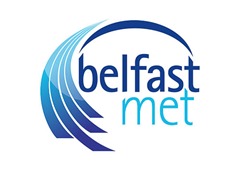Blurring the lines between industry and education
 Marie-Thérèse McGivern outlines Belfast Met’s contribution to the local economy.
Marie-Thérèse McGivern outlines Belfast Met’s contribution to the local economy.
There are two things about the economy upon which everyone agrees. One is that we are beginning to see the first signs of stability and possibly even growth. The other is that we’ve not yet managed to scramble out of the global economic hole we have all managed to fall into. Caution, therefore, is the watchword of the day.
It is against this backdrop that Belfast Metropolitan College, under the excellent stewardship of the Department for Employment and Learning and Minister Farry, is making its not inconsiderable contribution to rebalancing and rebuilding the local economy.
Belfast Met is the largest further and higher education college in Northern Ireland and one of only 30 colleges across the UK to join the influential 157 Group. Founded in 1906 as the Belfast Municipal Technical Institute at the height of the city’s industrial success, it remains one of Belfast’s key anchor institutions.
The numbers alone are convincing. Every year, Belfast Met educates and trains over 30,000 people. It employs 1,144 staff, has an annual turnover of £60 million and to date has invested the same amount in an estate strategy which has given the city two new, highly innovative and award-winning buildings – the Titanic Quarter campus in the east and the e3 economic development building in the west.
An impact study, commissioned by the 157 Group and launched at the end of 2013, revealed that the FE sector as a whole makes a £16.5 billion contribution to the UK economy and that the average impact on the regional economy for each college is £550 million. Further education colleges are important public assets and represent major investment on the part of government in future skills development.
One of the FE sector’s main strengths is its ability to react quickly to shifting industry requirements and to train, re-skill and up-skill individuals for a competitive and dynamic work environment. Many young people in education today will have as many as 20 different jobs throughout their lifetime – and these may not be jobs as we know them. The skills needed to generate their own employment are just as important as the skills to become employed by others.
The concept of lifelong learning has never been more applicable. Education isn’t something that should happen between the ages of four and 24 and then just suddenly stop. Workers must continue learning if they want to remain relevant, while companies must be supported in order to address current skills shortages and encouraged to plan for what’s going be needed further down the line.
Sectors of the economy which are targeted for growth are changing especially fast. Skills shortages remain a challenge although recent government initiatives are beginning to bear fruit. We are, for instance, seeing some excellent programmes from DEL on the back of its ICT Action Plan and Belfast Met is involved in the design and delivery of many of these. This includes the ICT Apprenticeship Programme, the Deloitte Data Analytics Academy, the Software Testers’ Academy and, most recently, the Cloud Academy. These are exciting ways of supporting a vibrant and critical sector and fit well with Belfast Met’s holistic approach to fostering technology talent, both now and for the future.
Technology has transformed education and neither learning, nor the world of work, stands still for very long. Belfast Met’s curriculum, its employer-engagement, its collaborative approach and indeed its entire modus operandi are tuned into this reality.
 Marie-Thérèse McGivern is Principal and Chief Executive of Belfast Metropolitan College. For information on courses call (028) 9026 5265 and for business development services (028) 9026 5058. Or visit www.belfastmet.ac.uk
Marie-Thérèse McGivern is Principal and Chief Executive of Belfast Metropolitan College. For information on courses call (028) 9026 5265 and for business development services (028) 9026 5058. Or visit www.belfastmet.ac.uk





